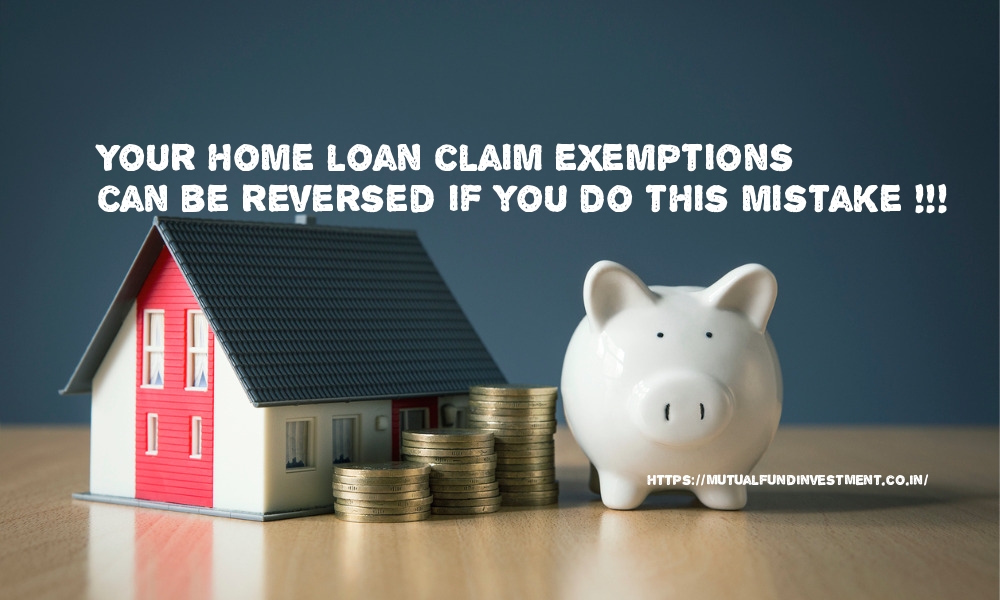Real estate is attractive market in India and it gives employment to 25% of Indian population. Buying and selling the home gives better returns. We have to consider many factors such as builders, area and facilities before buying a home. At the same time, itis critical know when to sell your home. If you don’t plan it well, you could end up paying a hefty tax. If a property is sold within three years of buying it, any profit from the transaction is treated as a short-term capital gain. This is added to the total income of the owner and taxed according to the slab rate applicable to him. For those earning over Rs 10 lakh a year, this would reduce their gain by 30%.
If you sell within 3 years, you have to pay 30% tax on profit
Also, if a house is sold within five years of the end of the financial year in which it was purchased, the tax benefits claimed go out of the window. The tax deduction claimed for the principal repayment, stamp duty and registration under Sec 80C are reversed and the amount becomes taxable in the year of sale. Only the deduction of the interest payment under Section 24B is left untouched.
If you sell within 5 years, the home loan tax benefits will be reversed
This is why it is advisable to hold a property for at least three years. If you sell after three years, the profit is treated as long-term capital gains and taxed at 20% after indexation. Indexation takes into account the inflation during the holding period and accordingly adjusts the purchase price, thereby slashing the tax burden for the seller. There are other benefits too. The owner can claim various exemptions in case of long-term capital gains, but no such benefit is provided for short-term gains.
Claim exemption available for LTCG, not on STCG taxes
The cost of the renovation on an indexed basis is reduced from taxable capital gains. This means that the original renovation cost is adjusted for the price of inflation and helps reduce your tax liability. The Cost Inflation index is notified by the tax authority. Therefore, if you have added a floor, room or have changed the structure of the house, the same can be claimed as home improvement expenses. But regular painting of the house or other regular maintenances will not be considered as home improvement expenses.
LTCG Capital gain needs to be paid only for capital gain – (Indexation + renovation cost + price of inflation)
Expenses incurred on repairs and renovation can be added to the cost of acquisition of the house while computing long-term capital gains. Also, the interest paid during the pre-construction period of the house can be added to the cost, if not already claimed as a deduction earlier.
The seller in India has to pay 20.80% LTCG tax on the profit portion of the sale
There are several ways to avoid paying tax when you sell a house. There is no tax to be paid if you use the entire gain from the transaction to buy another house within two years or construct one within three years. The two- and three-year period applies even if you bought another house a year before selling the first one. But the property should have been bought in the name of the seller.
No tax when you sell a home in case you buy another house
In case the entire capital gains are not invested, the balance amount is charged to long term capital gains tax. However, the entire tax exemption will be reversed if the new property is sold within three years of purchase or construction. In such a case, the entire capital gains from the sale of the previous house will be considered as short-term gains and taxed at the normal slab rates.
You can save 75% of your capital gain tax if you plan it well
If you are not keen to lock-in your gains from sale of the house in another property, there is another way out. You can claim exemption under Section 54 (EC) by investing the long-term capital gains for three years in bonds of the National Highways Authority of India and Rural Electrification Corporation Limited within six months of selling the house. However, one can invest only up to Rs 50 lakh in these bonds in a financial year.
No tax when you sell a home in case you invest in 3 years NHAI bonds
From the current financial year, sellers also have the option of investing the entire longterm capital gain in a technology driven start-up (certified by the Inter-Ministerial Board of Certification) to get relief from tax. The investment in computers and software for your start-up will be allowed to claim exemption of tax on sale of house held for at least three years.
No tax when you sell a home in case you invest in software start-up
Section 54 of the Income Tax Act of 1961 provides for exemption against the LTCG arising from the sale of a residential house (original asset). This exemption is available where the amount of LTCG arising from such sale is either invested to purchase another residential house (new house) within 1 year prior to or 2 years of the transfer of the original asset or the same is invested to construct a new house within 3 years of the transfer of original asset.
How indexation cuts tax:
If a house was bought for Rs 30 lakh and sold for Rs 75 lakh five years later, 20% tax on Rs 40 lakh gain is Rs 8 lakh. But indexation and other benefits will reduce the tax to Rs 1.47 lakh. Here is how it works.
House bought in 2009-10 Rs 30,00,000 Cost of adding a room in 2012-13 Rs 5,00,000 Indexed cost of acquisition Rs 51,31,329 Indexed cost of adding room Rs 6,84,390 Total cost of acquisition Rs 67,65,719 House sold in 2021-22 Rs 75,00,000 Long-term capital-gains Rs 7,34,281. Tax at 20% after indexation Rs 1,46,856
You pay 1.5 lakhs instead of 8 lakhs
There are no restrictions on the number of residential houses you can own on the date of sale of the property to be eligible for claiming exemption under Section 54. Since you are planning to invest more than the indexed long term capital gains, you will not have any tax liability. However in case full long term capital gains are not invested, the exemption will be available to the extent of investment and on the balance you will have to pay tax at flat rate of 20%.
There are no restrictions on the number of residential houses you can own

#House for sale in Bangalore #House for sale in India #taxpayers





